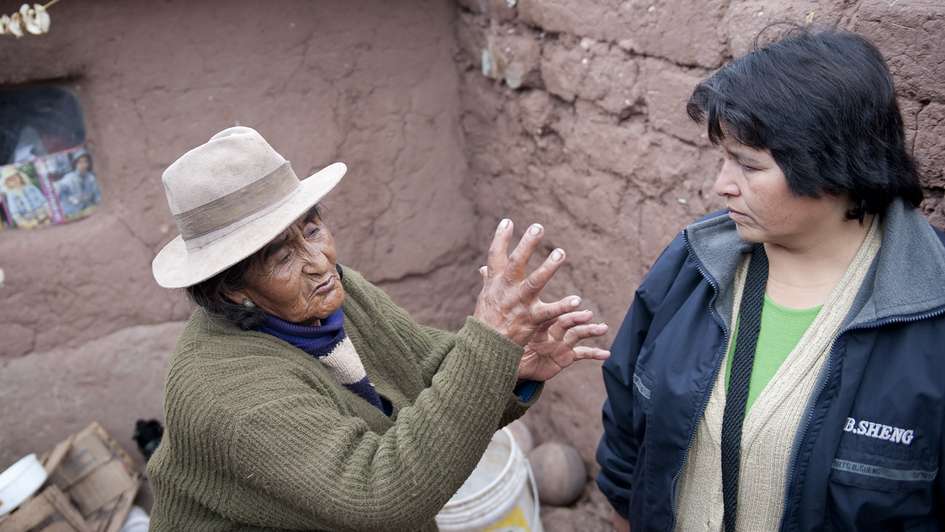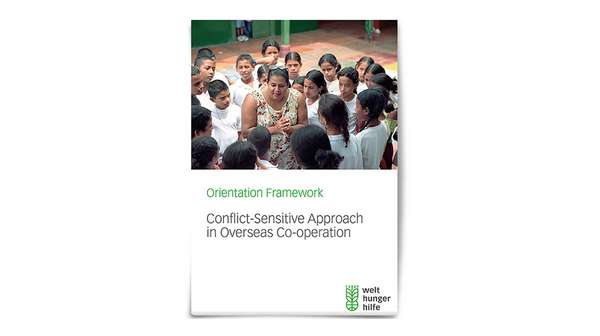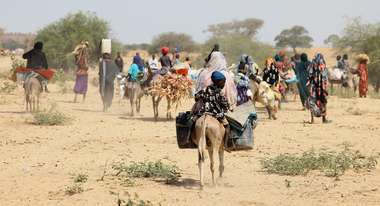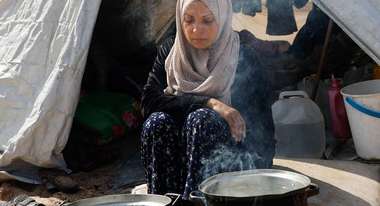This orientation oramework gives a useful and necessary overview on conflict-sensitive approach in overseas co-operation.
Prevention, not intervention
If the military is necessary, the crisis usually ends in violence.

Increasingly, military forces step in to help people in such situations as hunger catastrophes, which often lead to armed conflicts and human rights infringements when those affected attempt to acquire food through violence. In these situations, the military takes a stand between the fronts and attempts to resolve the conflict. In many cases, people also want to establish a functional state, food security and security with the support of the army.
These interventions are not always successful. In 1995, the United Nations intervention in Somalia ended in disaster: The troops did not succeed in enforcing peace. Instead, new centres of conflict arose, leaving the country in a worse state than before. The attempt to establish a stable state using military force is also threatening to fail in Afghanistan.
In fact, only three in every four interventions succeeds in curbing violence so that it does not return in the following years. Rule of law can be established in one in every two cases. And just one in three missions leads to an improvement in democratic structures, increased economic growth or better governance.
As such, there needs to be an alternative means of preventing such outbreaks of violence. Through its work, Welthungerhilfe is also attempting to prevent crises from occurring in the first place. It promotes human rights, democracy and rule of law in its projects. It works to prevent hunger and to help people provide their own food. Welthungerhilfe empowers people to help themselves, thus putting people in a position to deal with the most wide-ranging threats.








